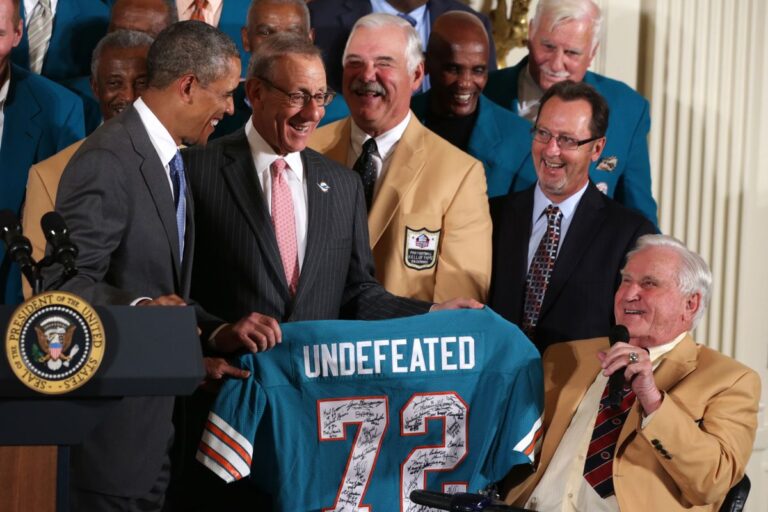
The ongoing divorce proceedings between Miami Dolphins star wide receiver Tyreek Hill and his ex-wife, Keeta Vaccaro, have thrust the couple into the spotlight, not for their personal lives but for the staggering financial obligations imposed by a recent court ruling. The court’s decision, which mandates Hill to provide substantial financial support to Vaccaro during the divorce process, underscores the complexities of high-profile divorces, where wealth, lifestyle, and legal battles intertwine. This article examines the details of the ruling, its implications for Hill, and the broader context of such settlements in the world of professional athletes.

The Court’s Financial Mandate
The court has ordered Tyreek Hill, one of the NFL’s highest-paid wide receivers, to pay Vaccaro between $20,000 and $50,000 per month in “spending money” to maintain her accustomed lifestyle during the divorce proceedings. This range reflects the court’s acknowledgment of Vaccaro’s need to sustain the standard of living she enjoyed during their marriage, a common consideration in divorce cases involving significant wealth disparities. In addition to these monthly payments, Hill is required to make a one-time payment of $500,000, cover $457,517 in legal fees, and provide $100,000 for Vaccaro to purchase a new car after her request to use a $200,000 Bentley was denied.

Further, Vaccaro retains exclusive use of the couple’s $5.5 million condominium, with Hill responsible for all associated costs, including mortgage payments, insurance, utilities, and internet. Hill must also cover health insurance for Vaccaro and their daughter, ensuring their financial security during this transitional period. These obligations highlight the court’s intent to preserve Vaccaro’s financial stability while the divorce is finalized, a process that could extend over months or even years.

Tyreek Hill’s Financial Burden
For Hill, whose 2022 contract extension with the Dolphins included a four-year, $120 million deal with $72.2 million guaranteed, these payments represent a significant but manageable portion of his income. His annual average salary of $30 million places him among the NFL’s elite earners, yet the cumulative weight of the court’s orders—potentially exceeding $1 million in immediate costs, plus ongoing monthly expenses—underscores the financial strain divorce can impose, even on the ultra-wealthy. The one-time payment of $500,000, combined with nearly half a million dollars in legal fees, represents a substantial upfront cost, while the monthly “spending money” and condominium expenses could add hundreds of thousands annually.
The denial of Vaccaro’s request to use a $200,000 Bentley, with the court instead ordering $100,000 for a new vehicle, suggests a judicial effort to balance Vaccaro’s needs with reasonable limits. This decision may reflect the court’s assessment that a less extravagant car suffices to maintain her lifestyle, a point that could set a precedent for future negotiations in the case.

The Broader Context of High-Profile Divorces
Hill’s case is not unique among professional athletes, whose high earnings and public profiles often lead to complex divorce settlements. Courts frequently prioritize maintaining the non-earning spouse’s lifestyle, particularly when children are involved, as seen in Vaccaro’s retention of health insurance for their daughter. The principle of equitable distribution in divorce law aims to ensure fairness, but in cases involving significant wealth, the sums can appear staggering to the public. For instance, the $457,517 in legal fees underscores the costly nature of divorce litigation, where high-powered attorneys and prolonged disputes drive up expenses.
The requirement to fund a $5.5 million condominium, including all associated costs, reflects the high-stakes nature of asset division in such cases. While Hill retains his earning potential as an NFL star, the court’s ruling ensures Vaccaro’s access to the couple’s shared wealth during the proceedings. This arrangement aligns with legal precedents that prioritize stability for the lower-earning spouse, particularly when minor children are involved.
Implications and Public Reaction
The public response to Hill’s divorce settlement has been mixed, with some viewing the court’s orders as excessive and others arguing they reflect the realities of maintaining a high-net-worth lifestyle. Social media platforms, including X, have buzzed with opinions, with some users questioning the fairness of the monthly “spending money” range and others defending Vaccaro’s right to financial support given the couple’s shared history. The case also raises questions about the financial pressures athletes face off the field, where personal decisions can lead to significant economic consequences.
For Hill, the ruling may prompt a reevaluation of his financial strategy, potentially affecting his investments, endorsements, or future contracts. While his NFL earnings provide a buffer, the ongoing costs could influence his long-term wealth management, particularly if the divorce settlement extends or additional obligations arise.
Looking Ahead
As the divorce proceedings continue, the court’s interim ruling sets the stage for further negotiations. The final settlement could involve additional asset divisions, alimony, or child support, depending on the couple’s circumstances and the court’s final judgment. For now, Hill’s obligations reflect the high cost of maintaining a shared lifestyle post-separation, a reality that resonates across high-profile divorces.
In conclusion, Tyreek Hill’s divorce settlement highlights the intricate interplay of wealth, law, and personal relationships in the public eye. The court’s orders, while financially burdensome, aim to ensure fairness and stability for Vaccaro and their daughter during a challenging transition. As the case progresses, it will continue to spark discussions about the financial realities of divorce among the rich and famous, offering a glimpse into the complexities behind the headlines.


